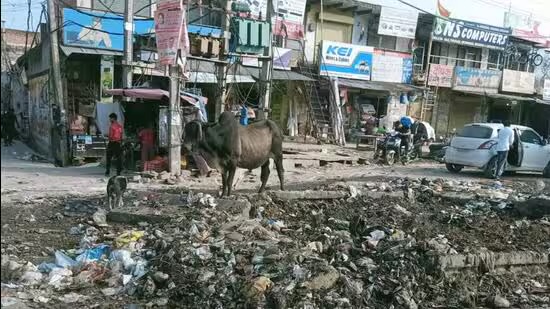The Municipal Corporation of Manesar (MCM) has announced a major initiative to improve waste-collection services by deploying RFID tags across all residential societies, group housing complexes and commercial establishments within its jurisdiction. This move is presented as part of MCM’s drive to enhance monitoring, improve service accountability and align with national urban sanitation goals under the Swachh Bharat Mission (Urban).
According to an official advisory issued by Deputy Municipal Commissioner Apoorva Chaudhary the RFID tagging will enable tracking of waste-collection operations in real time. Households or commercial units will not be charged for the tag installation which is to be handled by a private agency under contract to the civic body. The system is expected to provide digital verification of collection and transportation of waste from every tagged unit.
Under the scheme, each property will have a unique RFID tag installed at a designated collection point or entrance. Waste-collection staff will be equipped with handheld or vehicle-mounted RFID readers. On scanning a tag during collection, the system will register the event with date, time and location information and upload it to MCM’s monitoring platform. Such data is expected to enable the civic body to verify service delivery, detect missed collections and optimise collection routes.
The installation and implementation of RFID tagging in Manesar comes as MCM awards the door-to-door collection and bulk-waste-generator services contract to a private firm. That same contractor will also be responsible for installing the RFID tags and operating the associated collection-verification system. No charges are being passed on to property-owners, though authorised personnel will carry official MCM identity for the installation process.
The ambitions of the scheme go beyond audit and verification. With granular data on collection events, MCM aims to improve route efficiency, allocate fleet vehicles more effectively and produce performance-based insights. In other cities RFID tagging has enabled local authorities to monitor bin-emptied events, track equipment usage and optimise resource deployment.
Residents in Manesar have welcomed the announcement but emphasise that successful execution will be key. Some local housing society representatives have remarked that collection has been inconsistent in recent months and that digital tracking offers hope of improvement. However, they also note that tagging alone is not sufficient unless collection vehicles adhere to schedules and follow proper disposal practices.
Challenges are inherent in any technology rollout of this type. As the example of the neighbouring Municipal Corporation of Gurgaon (MCG) illustrates, a similar RFID-based waste-collection tracking project encountered delays and stalled despite installing approximately 200,000 tags out of a planned 300,000. Key factors for success will include training of collection staff, reliable scanning infrastructure, integration into a responsive operational platform and maintenance of the tags and readers.
For MCM the move signals a transformational shift from manual paper-based tracking of waste-collection rounds to a digitally monitored service. If effectively implemented, the system has the potential to enhance transparency, improve resident satisfaction, and reduce instances of missed or delayed collection rounds. It also aligns with national environmental regulations that seek better traceability in municipal-solid-waste operations.
The installation of RFID tags across Manesar by MCM is one step in smart-city sanitation management. Its promise of enhanced operational visibility, accountability and data-driven optimisation could deliver significant improvements in waste-collection efficiency and service reliability. The success of the initiative will depend on consistent execution, buy-in from stakeholders and a strong technological and operational backbone.
